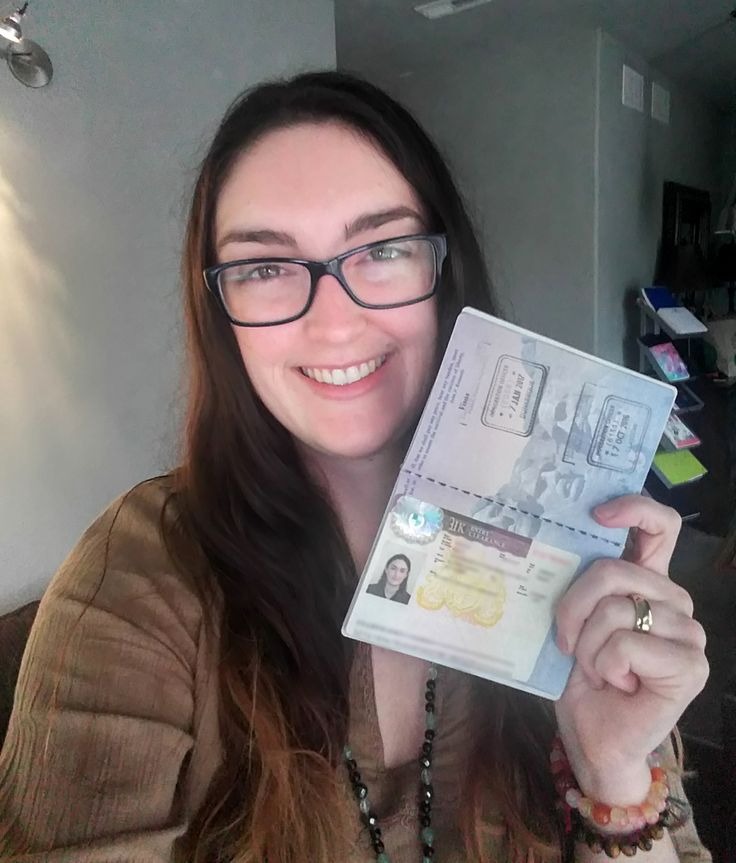Canada Work Visa Options for Spouses and Dependents
Canada has become a top destination for individuals seeking better job prospects, quality education, and a high standard of living.
The country’s immigration policies are known for being inclusive, offering various visa options for people who wish to work, study, or join family members who have already settled in Canada.
Results
#1. What is your primary reason for considering a marriage visa?
#2. Do you know which documents are required for a marriage visa application?
#3. How soon are you planning to apply for a marriage visa?
#4. Are you aware of the benefits a marriage visa provides?
#5. Which challenge do you think is the hardest part of applying for a marriage visa?
#6. What support would be most helpful to you during the application process?
If you’re considering moving to Canada, you may be wondering about work visa options for your spouse or dependents. Fortunately, Canada offers several pathways for spouses and dependents of primary applicants to join them and contribute to the workforce.
In this article, we will explore the work visa options available to spouses and dependents, focusing on the most common pathways and requirements.
Overview of Spousal and Dependent Work Visas in Canada
Canada’s immigration system is designed to support family reunification, allowing spouses and dependents to join primary applicants who are already living and working in the country.
Depending on the circumstances, spouses and dependents may be eligible for various types of work permits, some of which allow them to work full-time while others have restrictions.
Key Categories of Work Visa Options for Spouses and Dependents
The two primary categories of work visas available to spouses and dependents are:
1. Open Work Permits
2. Employer-Specific Work Permits
These permits come with different eligibility criteria, application processes, and durations. Let’s explore each in more detail.
1. Open Work Permits for Spouses
An Open Work Permit allows the holder to work for any employer in Canada, without the need for a job offer or a Labour Market Impact Assessment (LMIA).
This type of work permit is especially beneficial for spouses of skilled workers, international students, or individuals who have applied for permanent residency.
Eligibility for Spousal Open Work Permits
To be eligible for an open work permit as a spouse, the primary applicant must meet specific criteria:
- Spouse of a Skilled Worker: If your spouse is on a work permit in Canada under the skilled worker category (such as those working through the Express Entry program or under the Provincial Nominee Program), you may qualify for an open work permit.
- Spouse of an International Student: If your spouse is studying in Canada with a valid study permit, you can apply for an open work permit to work full-time. However, the conditions may vary depending on the type of study permit your spouse holds.
- Spouse of a Permanent Resident or Citizen: If your spouse is a Canadian citizen or permanent resident, you may be eligible for an open work permit while your permanent residency application is being processed.
- Spouse of a Refugee: If your spouse has refugee status in Canada, you may be eligible for an open work permit as well.
Benefits of an Open Work Permit for Spouses
- Work Anywhere in Canada: An open work permit gives you the flexibility to work for any employer in Canada and switch jobs without needing a new work permit.
- No LMIA Required: Unlike employer-specific permits, open work permits do not require a Labour Market Impact Assessment (LMIA) from an employer.
- Full-Time Employment: You are allowed to work full-time, providing financial stability and an opportunity to gain Canadian work experience.
2. Employer-Specific Work Permits for Spouses
An Employer-Specific Work Permit is another type of work visa that allows the holder to work only for a specific employer in Canada. This type of permit requires the employer to provide a valid job offer and, in most cases, a Labour Market Impact Assessment (LMIA).
Eligibility for Employer-Specific Work Permits for Spouses
- Spouse of a Temporary Worker: If your spouse is working in Canada under an employer-specific work permit, you may be eligible for an employer-specific work permit as well, depending on the job and employer.
- Spouse of an International Student: In some cases, spouses of international students may be eligible for employer-specific work permits if the student holds a valid study permit and meets specific eligibility criteria.
Benefits of Employer-Specific Work Permits
- Job Security: While these permits restrict you to working for one employer, the job offer from a Canadian employer can provide job security.
- Pathway to Permanent Residency: Employer-specific work permits can help the holder gain valuable Canadian work experience, which is beneficial when applying for permanent residency through programs like Express Entry.
SEE ALSO:
Health Insurance Cost for Immigrants in Canada
How much do Spousal Immigration Lawyers charge in Canada
How to apply for Work Visa as a Freelancer in Canada
3. Dependent Work Permits
In addition to spouses, certain dependent children of primary applicants may also be eligible to work in Canada, provided they meet the eligibility criteria. Dependent children are typically individuals under the age of 22, who are financially dependent on the primary applicant.
Eligibility for Dependent Work Permits
- Children of International Students: If the primary applicant holds a valid study permit, their dependent children may be eligible for an open work permit. However, this is only applicable if the child is over the age of 18 and studying in a recognized post-secondary institution.
- Children of Temporary Workers: Dependent children of temporary workers may also be eligible for open work permits if they meet the necessary conditions.
Benefits of Dependent Work Permits
- Opportunity for Financial Independence: Dependent children can support themselves by working in Canada, which reduces the financial burden on the primary applicant.
- Flexibility: Open work permits allow dependent children to work for any employer in Canada.
FAQs on Canada Work Visa Options for Spouses and Dependents
Can my spouse apply for a work permit if I am an international student?
Yes, your spouse can apply for an open work permit if you hold a valid study permit. The open work permit allows them to work full-time in Canada while you complete your studies.
How long does it take to process a spousal work permit?
The processing time for spousal work permits varies depending on the application type, country of origin, and whether the application is submitted online or on paper. On average, processing times can range from a few weeks to a few months.
Can my spouse and I apply for a work permit at the same time?
Yes, you and your spouse can apply for work permits at the same time, provided both of you meet the eligibility criteria for the respective permits.
What documents are required for a spousal work permit?
Required documents may include:
- A valid passport
- A copy of your spouse’s work permit, study permit, or permanent residency card
- Proof of relationship (e.g., marriage certificate)
- Proof of financial support
Can my spouse work while waiting for the approval of their work permit?
In most cases, spouses can only begin working once their work permit is approved. However, some applicants may be eligible to apply for a work permit on arrival if certain conditions are met.
Can my spouse work if I am on a visitor visa in Canada?
No, typically, spouses of visitors are not eligible to work in Canada on a visitor visa. However, there may be exceptions if the spouse is eligible for a work permit based on other conditions, such as being eligible for a work permit under a specific program or if the visitor is transitioning to a work permit or study permit.
Is there any way for my spouse to work if I am in the Express Entry pool?
Yes, spouses of individuals applying through Express Entry may be eligible for an open work permit while the primary applicant’s permanent residency application is being processed.
This allows the spouse to work full-time in Canada and contribute to the household income during the waiting period.
Can my dependent child apply for a work permit if they are 18 years old and studying in Canada?
Yes, if your dependent child is over the age of 18 and enrolled in a full-time post-secondary program at a recognized institution in Canada, they may be eligible for an open work permit, allowing them to work while studying. However, this depends on the specific conditions of their study permit.
How do I apply for a work permit for my spouse or dependent?
The application process for a work permit for your spouse or dependent can be done online or on paper through the Government of Canada’s official website.
The application will require supporting documents such as proof of relationship, your work permit or study permit, and financial support documentation.
Before You Go
Canada provides several work visa options for spouses and dependents of individuals residing in the country under work or study permits.
Spouses can apply for either open or employer-specific work permits depending on their circumstances, while dependent children of international students or temporary workers can also access work permits under certain conditions.
Choosing the right work permit depends on your specific situation, and it’s essential to gather the correct documentation and understand the eligibility requirements before applying.
Whether you are a spouse of a skilled worker, international student, or permanent resident, Canada’s flexible immigration policies offer opportunities for family members to join the workforce and enjoy a fulfilling life in the country.











